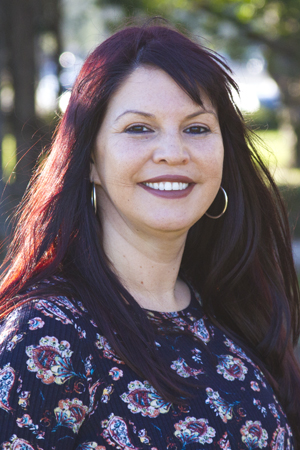Intellectual Developmental Disabilities
Leadership
-
 IDDRC Co-Director
IDDRC Co-DirectorJudy A. Van de Water, Ph.D.
Biological and Molecular Analysis Core Director
UC Davis Center for Children’s Environmental Health,
Professor, Department of Internal Medicine, UC Davis School of Medicine
530-752-2154
javandewater@ucdavis.eduJudy Van de Water is a professor in the Division of Rheumatology, Allergy and Clinical Immunology in the Department of Internal Medicine, and Associate Director for Biological Sciences at the MIND Institute. She is an internationally recognized immunologist who has conducted ground-breaking research on the roles of immune dysfunction and autoantibody production in the etiology of autism, including the effects of maternal autoantibodies during gestation and is currently translating her maternal autoantibody biomarker for autism risk into a commercially available diagnostic test and developing potential therapeutics. She is also the director of the UC Davis Center for Children’s Environmental Health and conducts research on the environmental factors contributing to altered neurodevelopment and immune dysregulation.
-
 IDDRC Co-Director
IDDRC Co-DirectorMelissa Bauman, Ph.D.
Rodent Behavior Core Co-Director
Professor, Department of Physiology and Membrane Biology
Associate Dean for Research Infrastructure
UC Davis, School of Medicine
916-703-0377
mdbauman@ucdavis.eduuMelissa Bauman, Ph.D., is Professor in the Department of Physiology and Membrane Biology and faculty at the UC Davis MIND Institute. Her research program uses preclinical models to evaluate risk factors and develop novel therapeutic interventions for neurodevelopmental disabilities. Her current research focuses on understanding how changes in the prenatal environment, in particular the maternal-fetal immune environment, may increase the risk for autism, schizophrenia and other neurodevelopmental conditions.
In addition to her research interests, she also has a strong commitment to advancing women's careers in science and medicine and served as the director of the UC Davis Women in Medicine and Health Sciences (WIMHS) program from 2018-2024. -
 IDDRC Co-Director
IDDRC Co-DirectorLeonard Abbeduto, Ph.D.
Distinguished Professor, Department of Psychiatry and Behavioral Sciences, UC Davis School of Medicine
E-mail: ljabbeduto@ucdavis.eduLeonard Abbeduto is a distinguished professor in the Department of Psychiatry and Behavioral Sciences at UC Davis. He has been a UC Davis faculty member since 2011, following 24 years at the Waisman Center IDDRC in Wisconsin. His research is designed to describe, understand, and treat the linguistic, cognitive, and behavioral impairments associated with intellectual disabilities, especially fragile X, down syndrome, and autism. His current research is focused largely on the measurement of treatment efficacy and the development of technology-delivered treatments. He has published more than 200 peer-reviewed articles, chapters, commentaries, and books. His program of research has been funded virtually continuously by NICHD since 1985. He is the founding Principal Investigator and Director of the UC Davis MIND Institute IDDRC.
-
 Rodent Behavior Core Co-Director
Rodent Behavior Core Co-DirectorJill L. Silverman, Ph.D.
Associate Professor, Department of Psychiatry and Behavioral Sciences;
UC Davis School of Medicine
916-734-8531
jsilverman@ucdavis.eduThe overarching goal of her research is to apply her 17 years of training and experience with rodent model systems to design and implement effective translation strategies for discovering medical treatments for neurodevelopmental and intellectual disability. Her predoctoral research in Molecular and Behavioral Neuroscience at the University of Maryland, School of Medicine, Maryland Psychiatric Research Center employed preclinical rat models of psychiatric disorders, such as schizophrenia and drug abuse. In 2007, she was recruited for postdoctoral training and research to lead in management of translational and behavioral phenotyping research projects in mouse models of autism within the laboratory of PI Jacqueline N Crawley at the National Institute of Mental Health Intramural Research Program. She joined the University of California Davis and MIND Institute in 2012. Her research projects have employed a multi-tiered comprehensive phenotyping strategy, that has led to the discovery of clinically relevant phenotypes in mutant rodent models of human genetic diseases associated with autism, Fragile X syndrome, 22q13 deletion (Phelan-McDermid), Angelman, Prader-Willi and Duplication 15q syndromes. In 2015, she was awarded space and resources to develop an independent research program on rare genetic developmental disorders characterized intellectual disabilities and pediatric epilepsies (UC Davis MIND Institute). The Silverman laboratory uses rodent preclinical model systems with overarching themes: we focus on rare genetic disorders and use novel model systems in mice and rats, we incorporate global neurophysiology, electroencephalography and neuroimaging by magnetic resonance, we design innovative, translational, quantitative outcome measures, we develop novel rat models that identify environmental risk factors for neurodevelopmental disabilities, and we are elucidating gene by environment interactions in these custom-created in vivo model systems. She was recently named a Fellow of the International Behavioral Neuroscience Society and serves on their council.
-
 Biological and Molecular Analysis Core
Biological and Molecular Analysis CoreJanine M. LaSalle, Ph.D.
Biological and Molecular Analysis Core, Genomics Director
Professor, Medical Microbiology and Immunology, UC Davis Genome Center
UC Davis MIND Institute
530-754-7598
jmlasalle@ucdavis.eduJanine LaSalle is a professor in the Department of Medical Microbiology and Immunology. She has expertise in epigenetics, molecular biology, genomics, and bioinformatics. She also serves as Associate Director of Genomics at the Genome Center and Deputy Director of the Environmental Health Sciences Center and is a long-time member of the MIND Institute faculty. She has developed a collaborative and interdisciplinary research program in epigenomics in neurodevelopmental disabilities, and she is an internationally known expert on molecular mechanisms of environmental epigenetics. She is also the Associate Director of Genomics at the Genome. Her laboratory also has expertise and equipment required for molecular assays, including DNA pyrosequencing for methylation analyses, chromatin immunoprecipitation, and fluorescence in situ hybridization.
-
 Biological and Molecular Analysis Core
Biological and Molecular Analysis CorePamela J. Lein, Ph.D.
Biological and Molecular Analysis Core, Neuroimaging Director
Professor, Department of Molecular Biosciences, School of Veterinary Medicine;
Chair, UC Davis Pharmacology and Toxicology Graduate Group
530-752-1970
pjlein@ucdavis.edu
Pamela Lein is a professor of neurotoxicology in the Department of Molecular Biosciences in the School of Veterinary Medicine and a member of the MIND Institute faculty. She has developed a collaborative and interdisciplinary research program in basic and applied aspects of developmental neurobiology, and she is an internationally known expert on cellular and molecular mechanisms of neurotoxicology. Her work has identified environmental risk factors that converge on signaling pathways that mediate activity-dependent remodeling of neuronal connectivity that are also known to be influenced by autism linked genes. In collaboration with Judy Van de Water, she is leveraging in vitro models to investigate how cytokines upregulated in autism modulate neurodevelopmental processes that shape neural circuits in the developing brain. -
 BBRD Core Director
BBRD Core DirectorKyoungmi Kim, Ph.D.
Biostatistics, Bioinformatics, and Research Design Core Director
Professor, Public Health Sciences
kmkim@ucdavis.eduKyoungmi Kim is a professor of Biostatistics in the UC Davis School of Medicine with expertise in statistical genetics/genomics in particular and in high-throughput -omics research in general. Her research interests include disease biomarkers, quantitative genetics, post- genomics, and statistical and research methodology. Particular emphasis areas include the use of statistical methodologies and bioinformatics tools to identify disease-related genes and small molecules to understand disease mechanisms by integrating different types of -omics data. She focuses on computational and statistical approaches to disease biomarker discovery, including early detection of disease and predictions of responses to therapeutic interventions and risk of patient stratification. She has considerable preclinical research experience with rodent models and multi factorial traits and clinical therapeutic studies for neurodevelopmental disabilities. She has participated in interdisciplinary team science projects addressing the genetic component of multi-factorial complex disabilities.
-
 Clinical Translational Core Director
Clinical Translational Core DirectorSally Ozonoff, Ph.D.
Endowed Professor and Vice Chair for Research, Department of Psychiatry and Behavioral Sciences,
UC Davis School of Medicine
916-703-0259
sozonoff@ucdavis.eduSally Ozonoff is Professor and Vice Chair for Research in the Department of Psychiatry and Behavioral Sciences, and a member of the MIND Institute faculty since 2002. She is a licensed clinical psychologist with 30+ years of research and clinical experience with autism. She is the Principal Investigator of a 17-year longitudinal study of infants at risk for autism, has helped develop diagnostic criteria for children and infants with autism, and has written a book on diagnosis and assessment of autism. She is trained to research reliability on the Autism Diagnostic Observation Schedule (ADOS-2) and the Autism Diagnostic Interview-Revised (ADI-R) and has many years of experience with other measures used by the CT Core, as well as in recruiting children with autism or at risk for autism. She manages the CT Core, meets weekly with the Core management team, and supervises the Core’s clinical and diagnostic assessment services.

